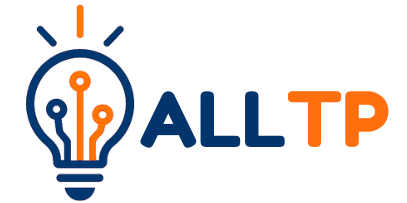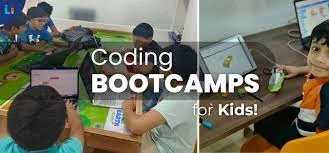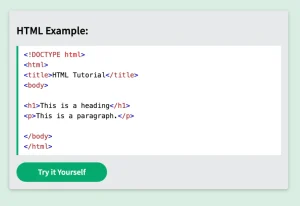In today’s digital age, coding has become a vital skill, not just for software developers, but for anyone navigating the modern world. In Kenya, the demand for tech-savvy talent is rising fast, driven by a booming digital economy, a growing startup culture, and government initiatives like the Digital Superhighway. As more industries rely on technology, coding is emerging as a key literacy for the 21st century.
Holiday coding camps are gaining traction as parents seek purposeful ways to engage their children during school breaks. Unlike traditional holiday activities, these camps blend fun with future-ready skills, giving kids hands-on experience with technology in a creative, collaborative environment. Don’t let your child’s holiday go to waste.
Enroll them in our coding for kids boot camp and turn their screen time into skill time. Help them build confidence, curiosity, and a competitive edge for the future.
Why Coding Camps?
Digital literacy is no longer optional, it’s essential. For today’s children, understanding how technology works is as important as reading or math. Learning to code introduces them to the logic behind the apps, games, and websites they use every day, helping them become not just consumers of technology, but creators.
Holiday coding camps offer a unique way to develop these digital skills in a fun, structured setting. Instead of passively watching screens, kids actively build games, apps, and websites. They engage in creative problem-solving, learn to debug code, and explore how tech solutions are developed.
Unlike traditional classroom learning, coding camps emphasize hands-on, project-based learning. Kids work in small teams, build real-world projects, and often present their work to peers and mentors, boosting their confidence and communication skills. The result? A dynamic learning experience that feels more like play than study, yet builds critical thinking, resilience, and collaboration skills they’ll use for life.
What Kids Learn at Holiday Coding Camps
Holiday coding camps in Kenya are designed to meet children at their level, whether they’re just starting out or ready to dive into more advanced tech. These camps are part of a growing coding Kenya movement that aims to equip young minds with the skills needed to thrive in the digital economy.
Foundational Skills:
Younger or beginner-level students are introduced to the basics through visual programming platforms like Scratch and Blockly. These tools use drag-and-drop code blocks to teach logic, sequencing, and simple algorithms in a way that’s easy to grasp and exciting to explore.
Advanced Options:
Older kids and returning learners can take on more challenging tools and languages such as Python, HTML/CSS, and JavaScript. Many camps also offer tracks in game development, mobile app design, or even robotics allowing children to turn their imagination into real-world tech solutions.
Soft Skills That Stick:
Beyond tech, coding camps nurture essential life skills. Kids learn problem-solving by debugging their code, practice creativity through open-ended projects, and build collaboration by working in teams. These soft skills are just as important as the technical ones and stay with them long after the holiday ends.
A Day in the Life at a Coding Camp
Coding camps are designed to strike the perfect balance between structure and creativity, ensuring kids stay engaged while having fun and learning.
Sample Daily Schedule:
- 9:00 AM – Welcome & Warm-Up Game
Start the day with an icebreaker or brain teaser to spark creativity. - 9:30 AM – Coding Lessons
Interactive tutorials where learners explore coding concepts based on their level. - 11:00 AM – Snack Break & Free Play
Time to relax, recharge, and socialize. - 11:30 AM – Coding Challenge or Mini Project
Hands-on application of new skills through small tasks or challenges. - 1:00 PM – Lunch Break
- 2:00 PM – Group Project or Robotics Session
Collaborate on a team-based build or dive into robotics, game design, or web development. - 3:30 PM – Showcase or Presentations
Share progress, get feedback, and celebrate wins, big or small. - 4:00 PM – Wrap-Up & Reflection
Review the day’s learning and prep for the next.
Activities that Inspire:
Kids engage in coding challenges, tech games, and group projects that encourage critical thinking and teamwork. Many camps also include non-screen activities to promote balance and reduce fatigue.
Mentorship & Peer Learning:
Campers benefit from close guidance by experienced instructors and tech mentors. They also learn from each other, sharing tips, solving problems together, and building friendships grounded in shared curiosity and creativity.
Types of Holiday Coding Camps in Kenya
Kenya’s coding camp landscape is becoming more diverse, offering flexible options tailored to different ages, learning styles, and locations.
Age-Specific Programs
Most holiday coding camps are segmented by age group to ensure content and teaching styles match each learner’s developmental stage.
- Ages 6–9 are introduced to foundational concepts using visual coding platforms like Scratch and Blockly.
- Ages 10–13 often begin exploring typed languages like Python, basic web design, and game development.
- Teens (14+) dive deeper into real-world programming, building functional apps, websites, or robotics projects.
Virtual vs. In-Person Options
Parents can choose between:
- In-person camps that offer hands-on mentorship, teamwork, and a social environment ideal for younger kids.
- Virtual camps that provide flexibility and accessibility for families in remote areas or those looking for a safer, home-based option. Online platforms often include interactive live sessions, real-time feedback, and downloadable materials.
Local Providers
Several reputable organizations now run high-quality holiday coding camps across Kenya:
- All Things Programming – Offers engaging boot camps online, tailored to the CBC curriculum and Kenyan context.
- Moringa Kids – A child-focused extension of Moringa School, offering beginner and intermediate coding courses.
- Kidocode Kenya – Known for combining STEM learning with coding, robotics, and AI for young learners.
With such variety, parents can find a program that fits their child’s needs, interest, and learning pace.
What Parents Should Look For
Choosing the right coding camp can make all the difference in your child’s learning experience. Here are key factors every parent should consider before enrolling:
Qualified Instructors & Student-Teacher Ratio
Ensure that the camp is run by experienced educators or industry professionals who understand both coding and how to teach children. A low student-teacher ratio allows for personalized attention, faster feedback, and better support especially for younger or first-time coders.
Safety Protocols (Especially for In-Person Camps)
For physical camps, verify that safety measures are in place. This includes secure venues, child supervision policies, and first aid preparedness. Camps should also maintain communication with parents throughout the day.
Curriculum Suitability
The best camps offer a structured curriculum tailored to your child’s age and skill level. Whether your child is just starting or ready for more advanced projects, the content should be age-appropriate, engaging, and progressively challenging.
Testimonials and Reviews
Look for feedback from other parents and students. Testimonials and online reviews provide insights into the camp’s effectiveness, atmosphere, and overall experience. A camp with a strong reputation often signals a well-run, impactful program.
Cost and Value
When evaluating holiday coding camps, it’s important to consider both the immediate cost and the long-term benefits your child will gain.
Price Range
In Kenya, coding camp fees typically range from KES 5,000 to KES 20,000 per week, depending on the provider, duration, and whether the camp is virtual or in-person.
- Basic programs (for younger children or shorter sessions) tend to be more affordable.
- Advanced tracks that include robotics kits, software licenses, or specialized instructors may cost more.
Some camps offer early-bird discounts, referral bonuses, or scholarships for talented students from underserved backgrounds. Always ask about available financial aid or group discounts. Expanding access to coding opportunities is crucial—according to research from The DO‑IT Center at the University of Washington, programs that support underrepresented students in STEM fields significantly boost participation and long-term success in tech careers
Long-Term Value
While the upfront cost may seem significant, the return on investment is even greater. Coding camps provide early exposure to tech careers, helping children explore interests in software development, engineering, AI, and digital design. They also build valuable skills like critical thinking, problem-solving, and innovation that are essential in today’s job market.
In many cases, a single holiday camp can ignite a lifelong passion for technology, setting your child on a path toward future job readiness and success in a digital-first world.
To conclude, Holiday coding camps in Kenya are more than just a way to keep kids busy, they’re a gateway to future skills, tech creativity, and career readiness. Whether your child is a curious beginner or a budding developer, these camps offer a structured, engaging, and fun environment where they can learn, build, and grow.
In a world where digital skills are becoming as essential as reading and writing, giving your child early exposure to coding is one of the best investments you can make in their future.
Don’t let the school break go to waste, turn it into a launchpad. Enroll your child in our coding for beginners boot camp today and give them the tools to thrive in a digital future.




